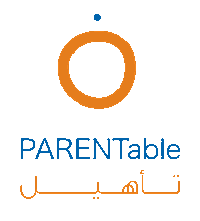
Haltungen und Erwartungen zwischen Pädagog*innen und Eltern
Dieses Modul wurde entwickelt, damit sowohl Pädagog*innen als auch Eltern ihre eigenen Erfahrungen mit der Schule reflektieren. Hier können sie untersuchen, welche Auswirkungen ihre Erfahrungen auf ihren Umgang mit Schule heute haben. Das Modul öffnet Räume für gegenseitiges Verständnis und hilft, Erwartungen an die jeweils andere Gruppe zu klären.

AKTIVITÄTEN
Literatur
Jutta Heckhausen, Heinz Heckhausen: Motivation und Handeln. Springer, Berlin / Heidelberg 2010, ISBN 978-3-642-12692-5 (Kapitel 3.3.3 Das Hierarchie-Modell von Maslow)
Nicole Celestine, Ph.D., Abraham Maslow, His Theory & Contribution to Psychology, 29 Sep 2017, https://positivepsychology.com/abraham-maslow/ (last accessed on 2022/18/6)
References for teachers that would like to depeen their knowledge about the educational system from where pupils come from:
- Abi-Mershed, O. (2010). Trajectories of Education in the Arab World. Legacies and challenges. Published in Association with the Center for Contemporary Arab Studies, Georgetown University. Routledge Edition
- Griffin, R. (2006) (Edited by). Education in the Muslim World: Different Perspectives. Oxford, UK. Symposium Books
- Kirdar, S. (edited by) (2017). Education in the Arab world. Bloomsbury Academic.
- Maherzi, A. (2019).Culture et enseignement dans la civilisation arabo-musulmane. In Global Comparative Education: Journal of the WCCES, Vol.3 No.1&2, pp.68-86.
- Mohamed, E., Gerber, H. R., Aboulkacem, S., & Momani, B. (Eds.) (2016). Education and the Arab Spring: Resistance, reform, and democracy. Rotterdam: Sense Publishers. Pp. 160 ISBN: 978-94-6300-471-8
References for parents that would to understand better how school inclusion works in Europe:
- Catarci, M. (Eds.) (2015). Intercultural Education in the European Context: Theories, Experiences, Challenges. Taylor and Francis. Kindle Edition.
- Crul et al. (2019). How the different policies and school systems affect the inclusion of Syrian refugee children in Sweden, Germany, Greece, Lebanon and Turkey. Comparative Migration Studies (2019) 7:10 https://doi.org/10.1186/s40878-018-0110-6
Entdecken Sie weitere E-Learning-Kurse.





